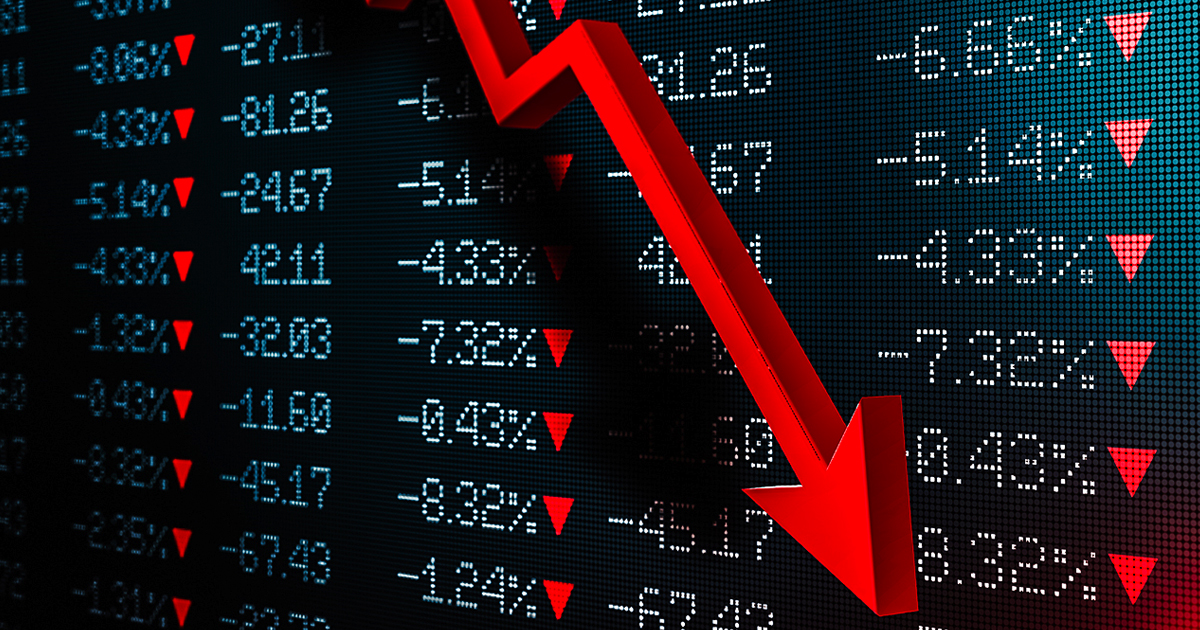U.S. Economy Faces Possible Recession by End of 2024
21.07.2024 10:00 2 min. read Alexander Stefanov
Analysts are sounding alarms about potential economic trouble ahead for the United States. Several key indicators that have historically predicted downturns are aligning, suggesting a recession may be looming.
According to research from Game of Trades, there are worrying signs in the labor market. Initial jobless claims have risen significantly, increasing from 190,000 in January to 240,000 recently. This pattern mirrors previous pre-recession periods, such as those before the financial crises in 2008, 2001, and 1990.
Another red flag is the declining perception of job availability. Over the past year, more people report that jobs are becoming harder to find, a sentiment that typically emerges about a year before a recession. This shift indicates growing unease in the labor market, suggesting a potential rise in unemployment soon.
Perhaps the most telling sign is the inverted yield curve, a financial phenomenon where short-term interest rates exceed long-term rates. This inversion has been a consistent predictor of recessions in recent economic history. Currently, the yield curve has been inverted for the longest period since 1929. Despite the rise in jobless claims, the yield curve hasn’t steepened yet, which means the financial markets might not have fully priced in the risk of a recession.
Adding to these concerns is the disconnect between economic indicators and the performance of financial markets. Historically, in the early stages of a downturn, the stock market continues to rise even as economic indicators worsen. This trend has been observed since January 2024, with the S&P 500 climbing about 15% despite rising jobless claims. This suggests that the financial markets may be underestimating the potential for an economic downturn.
Given these signs, analysts are now speculating about the timing of a possible recession, with some predicting it might occur in the latter half of 2024, particularly if sectors like the stock market and crypto reach new highs before then.
-
1
U.S. PCE Inflation Rises for First Time Since February, Fed Rate Cut Likely Delayed
27.06.2025 18:00 1 min. read -
2
Key U.S. Economic Events to Watch Next Week
06.07.2025 19:00 2 min. read -
3
Gold Beats U.S. Stock Market Over 25 Years, Even With Dividends Included
13.07.2025 15:00 1 min. read -
4
U.S. Announces Sweeping New Tariffs on 30+ Countries
12.07.2025 16:30 2 min. read -
5
US Inflation Heats Up in June, Fueling Uncertainty Around Fed Cuts
15.07.2025 16:15 2 min. read
US Inflation Heats Up in June, Fueling Uncertainty Around Fed Cuts
U.S. inflation accelerated in June, dealing a potential setback to expectations of imminent Federal Reserve rate cuts.
Gold Beats U.S. Stock Market Over 25 Years, Even With Dividends Included
In a surprising long-term performance shift, gold has officially outpaced the U.S. stock market over the past 25 years—dividends included.
U.S. Announces Sweeping New Tariffs on 30+ Countries
The United States has rolled out a broad set of new import tariffs this week, targeting over 30 countries and economic blocs in a sharp escalation of its trade protection measures, according to list from WatcherGuru.
Key U.S. Economic Events to Watch Next Week
After a week of record-setting gains in U.S. markets, investors are shifting focus to a quieter yet crucial stretch of macroeconomic developments.
-
1
U.S. PCE Inflation Rises for First Time Since February, Fed Rate Cut Likely Delayed
27.06.2025 18:00 1 min. read -
2
Key U.S. Economic Events to Watch Next Week
06.07.2025 19:00 2 min. read -
3
Gold Beats U.S. Stock Market Over 25 Years, Even With Dividends Included
13.07.2025 15:00 1 min. read -
4
U.S. Announces Sweeping New Tariffs on 30+ Countries
12.07.2025 16:30 2 min. read -
5
US Inflation Heats Up in June, Fueling Uncertainty Around Fed Cuts
15.07.2025 16:15 2 min. read


